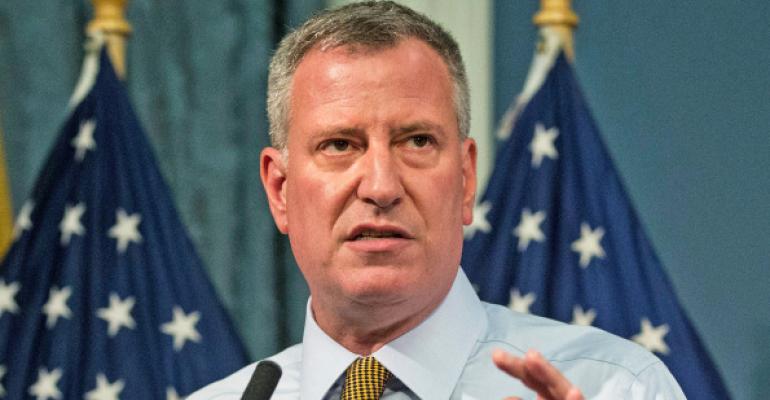Recent stories of New York City Mayor Bill De Blasio personally phoning real estate developers for donations raise the question—how much of administration strategy has been enabled by funding from the commercial real estate industry?
Over the past year, the De Blasio administration has faced heightened scrutiny and criticism, be it for its policy on the homeless, snowplowing performance, the Mayor’s affordable housing plan and, most recently, campaign fundraising. Big real estate developers were among the top contributors to De Blasio’s 2013 election. Funding practices of his 2016 re-election campaign are now under federal investigation. His administration faces subpoenas for fundraising activities in connection with the New York State Senate race in 2014.

In addition, the sale of the Rivington Housing nursing home in Manhattan proved a debacle for an administration that claims that its one hand does not know what the other hand is doing. But it did turn out quite nicely for real estate investors the Allure Group, which after paying $16.5 million to lift a deed restriction on the property, turned a $28 million February 2015 facility purchase into a $116 million sale that would turn the nursing home into a condo project.

Meanwhile, community leaders are protesting De Blasio’s ambitious affordable housing plan for its rezoning strategy. Developers’ reactions have been mixed, for although city funding and bigger buildings are a possibility, costs to initiate projects remain high, especially with 421-a still dormant.


